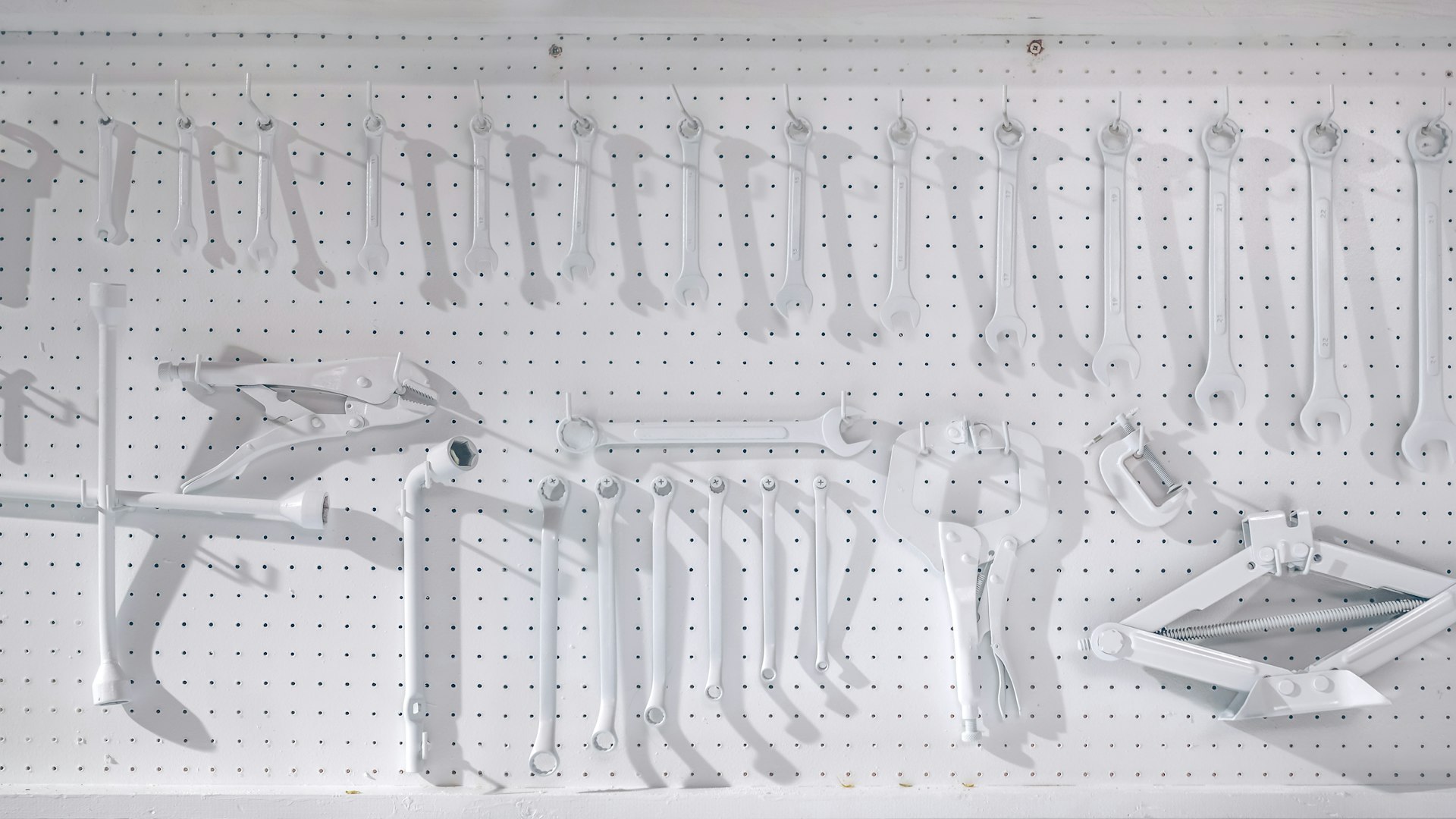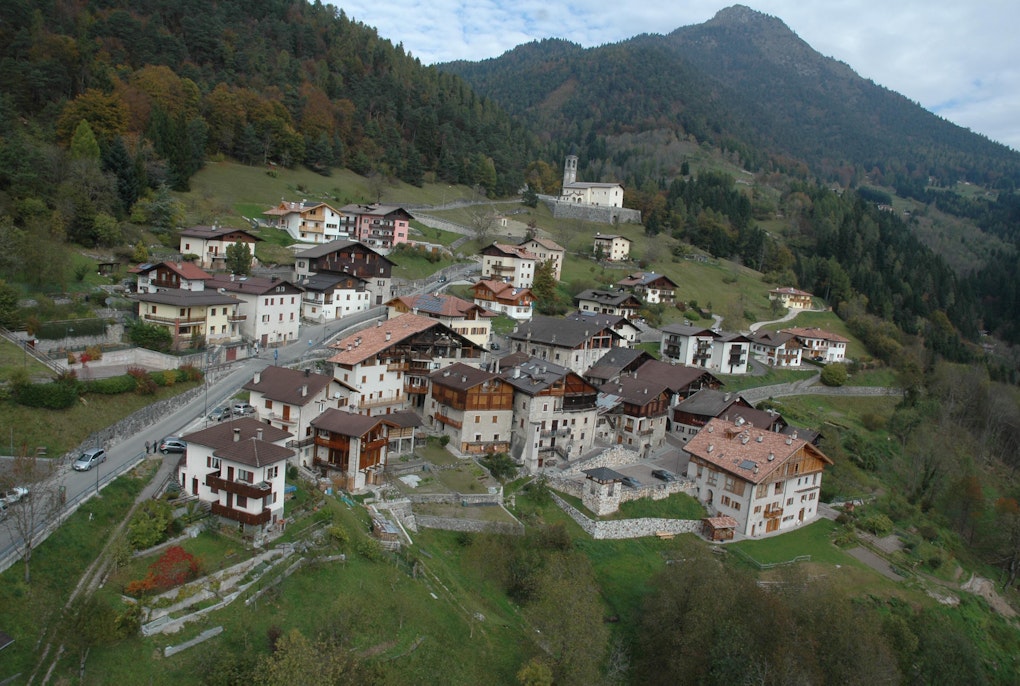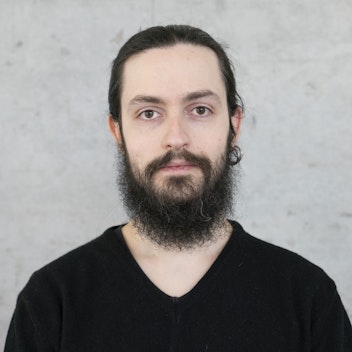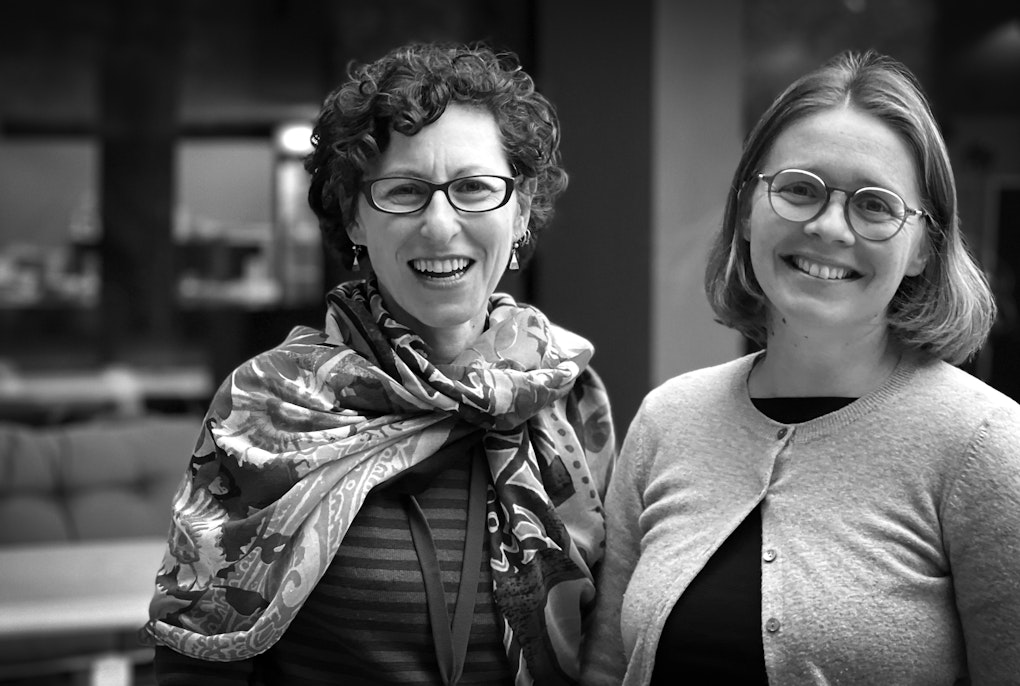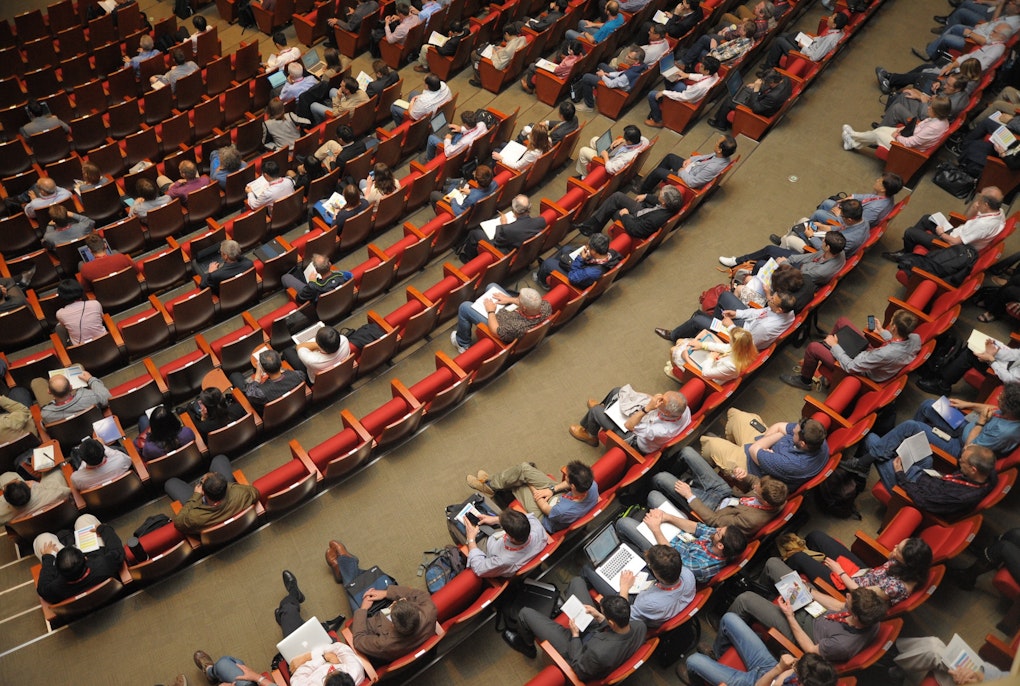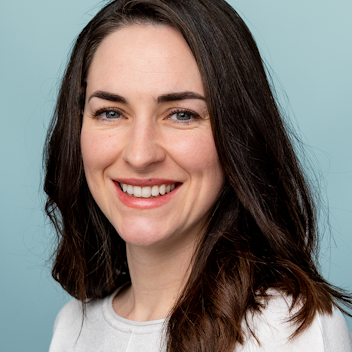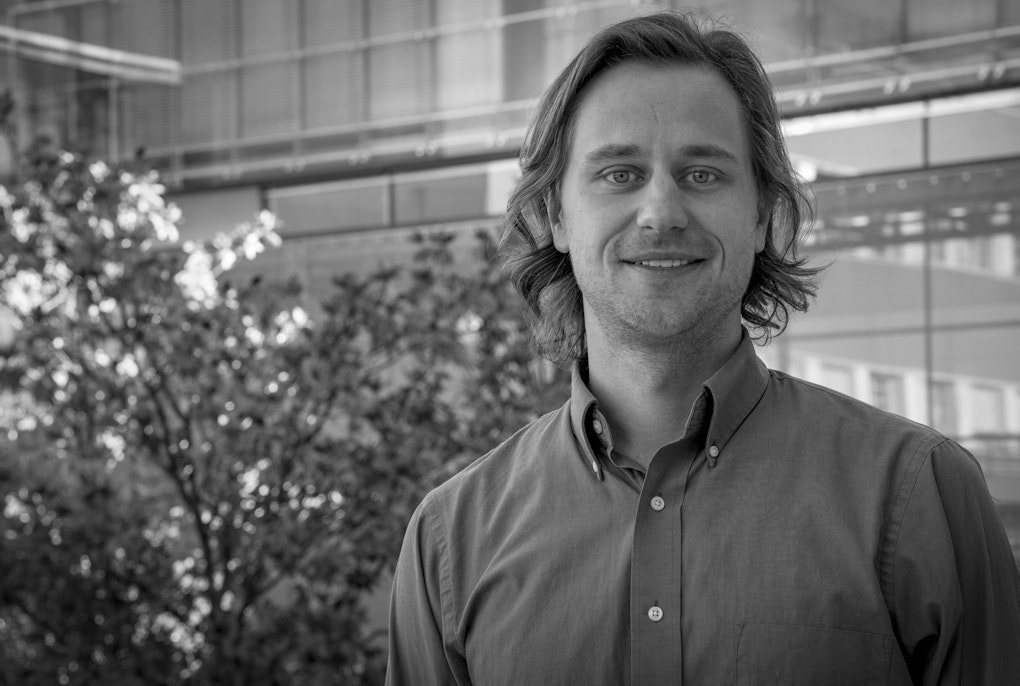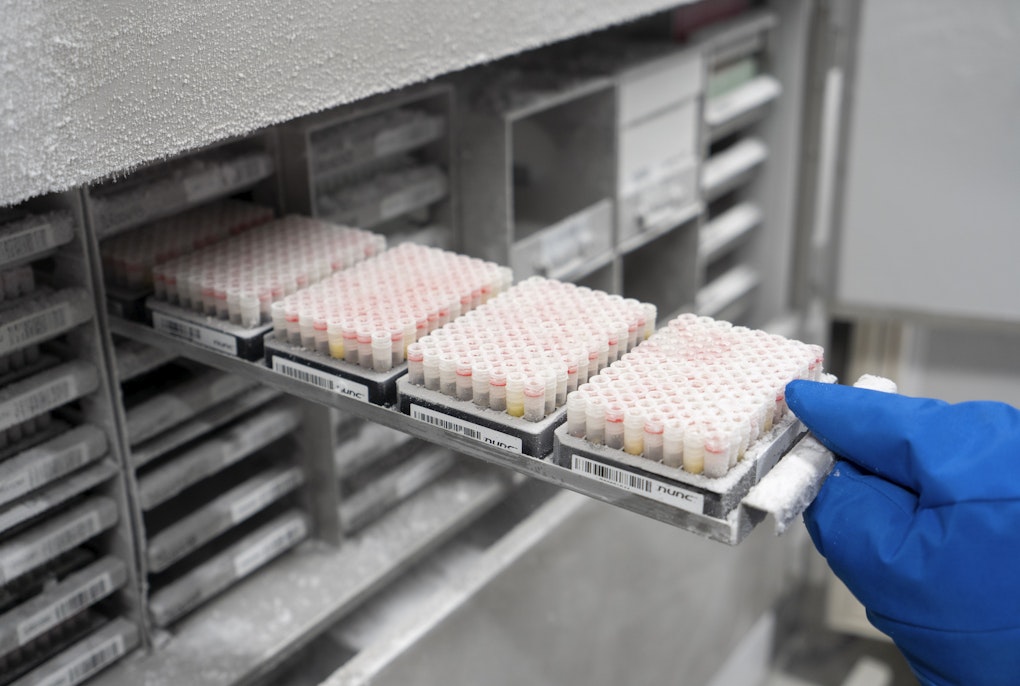magazine_ Article
When Excel is not enough
Tales from the community using Open-Source software to create their own working tools
Analyzing large amounts of data is a complicated task. Tackling this vast offering of information with sub-optimal tools is a waste of time and limits the research outcome. That’s why next gen scientists like Mattia Rossi and Giulio Genova - employ Open Source IT skills in order to create customized and more importantly shared tools, despite the fact that neither are computational scientists. For their contribution, Rossi and Genova were awarded with 2021’s Open Research Award.
In the late nineties I used to fax my grandmother. She was very hard of hearing and we couldn’t chat on the phone. Every time I met her, she would ask me: “How is it possible that a sheet of paper with your handwriting comes out of a black box, when you are tens of kilometers away?”. She was grateful for that tool, but also at a sidereal distance from my "technological normality".
When I met Giulio Genova and Mattia Rossi, I was my grandmother.
Giulio Genova and Mattia Rossi have programmed a web application called Meteobrowser which through an intuitive interface, displays all the climate data available for the last three years in the province of Bozen/Bolzano, from temperature to snow, wind and atmospheric pressure. Genova and Rossi, however, are not computer scientists: Genova is an ecologist and PhD student at unibz, currently working at the International Soil Information and Reference Centre (ISRIC) in Wageningen, the Netherlands, while Rossi is a geographer at Eurac Research's Institute for Earth Observation. Yet for them, using programming languages such as R, Python or JavaScript is completely 'normal'. Of course, they know they are more well- versed than their other colleagues in these languages, but they are also representatives of a young scientific community for whom having basic Open-Source programming skills is indispensable in their research work, or at least it should be.
The normalization of innovation
"You can't do research with large amounts of data using Excel sheets anymore"; Rossi cuts to the point: "It doesn't matter what computer language you use - you choose it according to the result you want to achieve, but there is one certainty: you will have to organize the large amounts of data in appropriate programs. At my university, in Würzburg, I was pushed towards data sciences, but in general, universities are struggling".
"Certainly, there is still a need for Open-Source literacy and it is a generational issue, but even those who are less familiar with these tools should have the vision and be able to understand the potential,' says Genova. "It's been a while since Open Source has been the victor".
For the majority of people over 35, Open Science has the same effect that fax machines did on my grandmother. We are grateful for open software, which can be modified, enriched or corrected by anyone who knows how because it gives us access to a lot of useful information – just think of Wikipedia, or the interactive portals we use for consulting election results or the progress of the pandemic – but we do not really understand how it works.
The first ideological battles against proprietary software, i.e. software that is paid for and cannot be customized except at a very high price by software companies such as Microsoft or Adobe, date back to the 1980s and were carried out by only a handful of computer professionals. Genova defines them as "kind of hippies", and looking at the long hair and beard of Richard Stallman, one of the earliest US activists, he has a point. (And you do not even have to listen to the song Stallman wrote as an ode to free software).
A lot of water has passed under the bridge since then: today, for those who create a piece of code to better manage the results of experiments in a biomedical laboratory or the data of engineering tests, the hippy essence has faded. In fact, even the nerd veneer is disappearing. Innovation is simply becoming something normal.
Here is my code!
"Here's the link to my code, if you want to work on it, get busy". That's how Rossi replied to Genova the first time he contacted him. And he, Genova, got busy indeed.
For his PhD thesis, Rossi had worked with meteorological data made available in open-source mode by the Autonomous Province of Bozen/Bolzano. Rossi had sorted the results out for his own needs. Genova found out and looked at the work, but in his opinion the data representation was still complex: "It was ok for professionals, but you couldn't consult the information intuitively". So, when he received the code he started testing. He was not an expert in R – a software born for mainly statistical purposes that today is also used more generally to visualize search results in databases – but he studied and watched hours and hours of online tutorials.
After all, it's a virtuous circle. "Now that even the big computer companies are offering Open-Source software, there are more and more opportunities to learn and experiment," Rossi points out. "And with Open Source, you collaborate better, faster”.
After a few months and countless exchanges of messages, the two scientists that did not know each other beforehand completed the Meteobrowser. In the middle of the screen is an interactive map: to read the data, you can click on the icons that indicate the measuring stations, but you can also select a geographical area; moreover, you can choose the time interval that you prefer. Any user can do this intuitively. And the web analytics confirm this.
Online since August 2019, the site has received over 6,000 visits and many users have contacted the two researchers since. "Colleagues use the platform to plan their measurement campaigns, geologists and snowmaking companies have written to us, and even professionals we would never have thought our data could be useful to, such as the managers of a salami producer, have reached out," recalls Genova. "You really do collaborate better if you share," reiterates Rossi.
With the experience of the Meteobrowser in mind the two young scientists went on to establish a special club: BolzanoR. Around twenty people from Eurac Research, unibz, the local administration as well as independent professionals would meet once a week taking it in turns to present a case and together discuss problems and exchange tips and tricks. However. the pandemic put the activity on hold: “You can't grow a community of that type online”. Experience has shown that Open Source collaboration works better over a few beers.
The Winners of the Eurac Research Open Research Award 2021
The main two Open Research Awards went to:
The Group “Language Technologies (LT)” at the Institute of Applied Linguistics whose purview stretches across disciplines, languages and communities and manifests itself in the active participation and coordination of initiatives designed to bring people together, invite them to join in the research and shape best practice. (read the interview)
Johannes Rainer, leader of the Team “Computational Metabolomics” at the Institute for Biomedicine, who has established successful tools and practices for open, collaborative, and reproducible research and whose engagement in a community approach to problem solving are influencing the general attitude of data scientists at the Institute and beyond in the vast R and Bioconductor communities. (read the interview)
The two Awards for Early Career went to:
Alberto Scotti, Institute of Alpine Environment, whose research on aquatic insects as sentinels of environmental changes has been done following the ideal of the open research culture and the aim of sharing every research output.(read the interview)
Giulio Genova, Institute for Alpine Environment, and Mattia Rossi, Institute for Earth Observation, who have collaboratively developed open source tools that help and enable not only researchers but also users with minimal programming skills to access and analyze meteorological and environmental data easily and efficiently.
